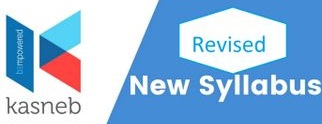kasneb
CPA ADVANCED LEVEL
ADVANCED AUDITING AND ASSURANCE
FRIDAY: 17 December 2021. Time Allowed: 3 hours.
Answer ALL questions. Marks allocated to each question are shown at the end of the question.
QUESTION ONE
(a) One of the practices that has gained momentum in the recent past is remote auditing, particularly following the outbreak of the COVID-19 pandemic.
Required:
As an auditor, describe how you would approach remote auditing from a practical perspective. (6 marks)
(b) Management audit calls for an inter-disciplinary approach considering the scope and focus of the audit.
Required:
Discuss the above statement with particular reference to:
(i) Steps involved in a management audit. (3 marks)
(ii) Management functions appraised. (4 marks)
(iii) Audit techniques adopted. (3 marks)
(c) Explore the potential threats to an auditor’s independence. (4 marks)
(Total: 20 marks)
QUESTION TWO
(a) You are the Audit Manager at Milele Associates, a firm of Certified Public Accountants. You are assigning staff to the final audit of Melrose Ltd., a company listed on the Securities Exchange, for the year ended 30 September 2021. You are aware of the following critical matters:
• Melrose Ltd. has recently issued a profit warning. The company has announced that significant synergies expected from the acquisition of Atalanta Ltd., a former competitor company, have not materialised. Moreover, it has emerged that some of Atalanta Ltd.’s assets are significantly impaired.
• Your firm’s Corporate Finance Department assisted two audit trainees carried out due diligence on behalf of Melrose Ltd. before the purchase of Atalanta Ltd. was completed in September 2020.
Required:
Comment on the ethical and other professional issues raised the above matter and their implications, if any, for staffing the final audit of Melrose Ltd. for the year ended 30 September 2021. (6 marks)
(b) You are the Audit Manager at ABC & Co., a firm of Certified Public Accountants. Currently, you are responsible for the audit of two companies, L Ltd. and M Ltd. The year end for each of the companies is 30 June. You are currently reviewing the audit working papers, files and the audit seniors’ recommendations for the auditors’ reports. The details are as follows:
(i) L Ltd. is a subsidiary of K Ltd. Serious going concern problems have been noted during this year’s audit. L Ltd. will be unable to trade for the foreseeable future unless it continues to receive financial support from the parent company. L Ltd. has received a letter of support (comfort letter) from K Ltd.
The Audit Senior has suggested that due to the seriousness of the situation, the audit opinion must at least be qualified “except for”.
(ii) M Ltd. has changed its accounting policy for goodwill during the year from amortisation over its estimated useful life to annual impairment testing. No disclosure of this change has been made in the financial statements. The carrying amount of goodwill in the statement of financial position as at 30 June 2021 is the same as at 30 June 2020 as management’s impairment test shows that it is not impaired.
The Audit Senior has concluded that a qualification is not required but suggests that attention could be drawn to the change way of an emphasis of matter paragraph.
Required:
Discuss, with justification, whether you would agree with the Audit Senior’s conclusions in each of the cases above. (10 marks)
(c) Explain the case against the rotation of auditors a client. (Hint: Approach from both the auditor’s and client’s perspective). (4 marks)
(Total: 20 marks)
QUESTION THREE
(a) An audit strategy sets the direction, timing and scope of an audit.
Required:
In the context of the statement above:
(i) Explore the salient features that distinguish a systems-based approach from a risk-based approach to an audit. (4 marks)
(ii) Describe the factors that influence the choice of an audit strategy. (4 marks)
(b) There is a strong inter-connection between a financial audit and an operational audit. However, differences also exist.
Required:
Discuss the above statement, clearly bringing out any differences between the two types of audit. (4 marks)
(c) The International Standards on Auditing (ISAs) address various professional standards of practice for auditors.
In particular, ISA 240 – “The Auditor’s Responsibilities Relating to Fraud in an Audit of Financial Statements” requires the auditor to focus on areas where there is risk of material misstatements due to fraud, including management fraud.
Required:
Explain the actions that an auditor should take to effectively deal with issues of fraud during an audit. (8 marks)
(Total: 20 marks)
QUESTION FOUR
(a) Audit committees play a critical role in the governance structure of institutions and in the protection of public interest.
Required:
Discuss the key responsibilities of an audit committee. (8 marks)
(b) Money laundering continues to gain currency in spite of efforts countries and international financial institutions to combat it.
Required:
Summarise some of the measures undertaken various countries and international financial institutions to control and prevent money laundering. (6 marks)
(c) Describe some of the areas that an audit review should address. (6 marks)
(Total: 20 marks)
QUESTION FIVE
(a) Explain the main rules of evidence in court proceedings relating to audit issues.
(b) Discuss each of the following matters as applied in auditing and assurance:
(i) Due diligence investigations.
(ii) Role of auditors in receiverships and liquidations.
(iii) Integrated reporting.
